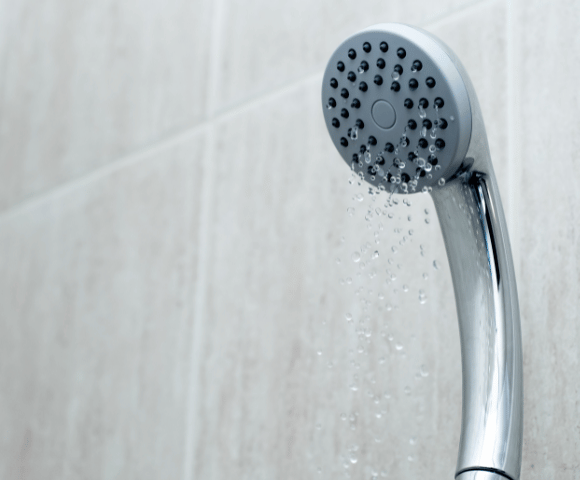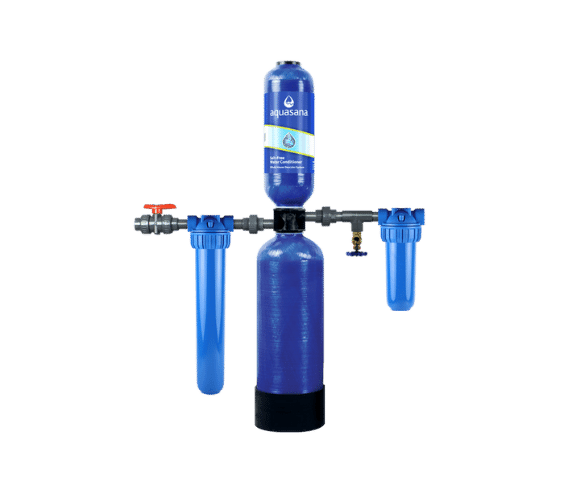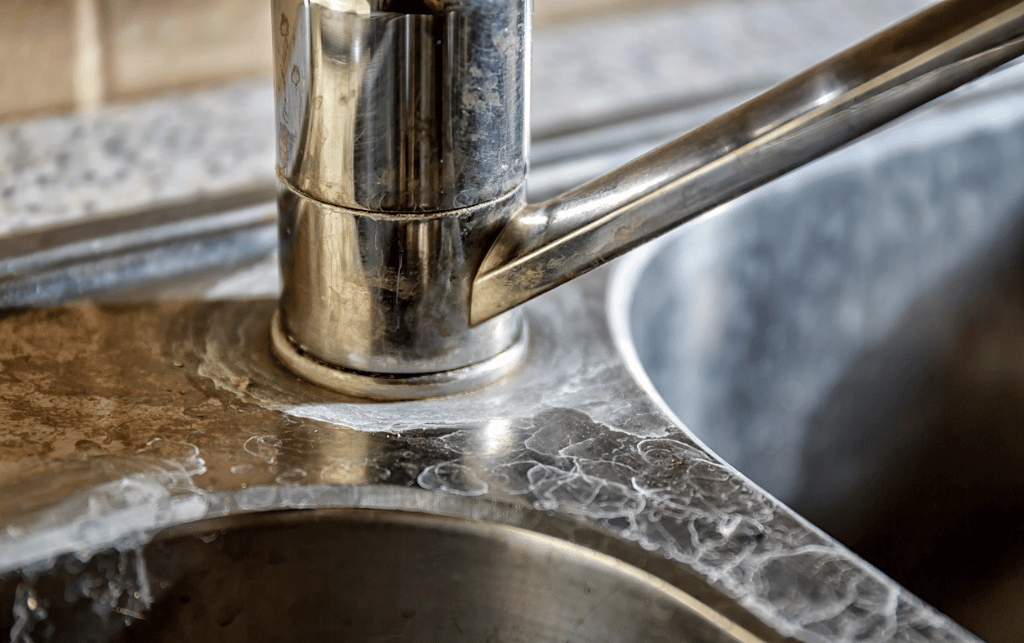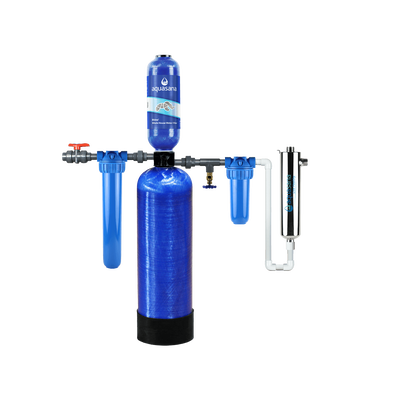Local geology
Your local geology refers to the different types of rocks that are present in your region, and it has a major effect on water hardness for wells.
Sedimentary rocks like sandstone, limestone, and shale contain a lot of water-soluble minerals, which are minerals that easily dissolve and get absorbed when they come in contact with water. As water travels through sedimentary rock layers, the water-soluble minerals get picked up which increases the water’s hardness. So if you live in a region with a lot of sedimentary rock, your well water is more likely to be hard.
By comparison, regions with a lot of igneous rock like granite are more likely to be soft because they contain lower levels of minerals.
Signs your well water is hard
Testing is the only surefire way to determine if your well water is hard or soft, but there are a few signs that can indicate the water coming from your well is hard. Here are the most common signs to watch for:
- Soap Scum Residue: Soap scum is a white or gray film that can appear on surfaces that come in contact with hard water including your skin, hair, shower, and sinks. After washing, you may also notice soap scum leaves your skin feeling itchy and dry with hair that has more dandruff than usual and is prone to breakage.
- Mineral Deposits: As hard water comes in contact with surfaces, it leaves small mineral deposits of limescale which can appear as white spots on fixtures, dishes, and clothing.
- Low Water Pressure: Over time, the mineral deposits form scale build-up in pipes and appliances which creates clogs that lower your water pressure. Long-term, scale build-up can even result in pipe bursts and appliances that break or work less effectively.
- Unusual Taste or Texture: Hard water usually has a chemical or chalky taste, with a texture that you can feel as you’re drinking it.
- Soap Doesn’t Lather: The excess minerals in hard water prevent soap from lathering how it’s intended to, which makes it harder to clean your body, clothes, and dishes.

How to treat hard well water
If your well has hard water, you can treat it by using a water softener or a water conditioner. These systems both address hard water, but work in different ways and have a few notable distinctions.
Water softeners are more powerful and are generally cheaper to buy, but require salt replacements and are less eco-friendly because they generate wastewater and use electricity. Water conditioners are more eco-friendly because they don't generate wastewater or use electricity, but they're generally more expensive upfront and aren't as powerful as softeners.
You should research both options to figure out which is the best fit for your situation. Aquasana offers both types of systems to meet your needs. Our SimplySoft® 40,000 & 60,000 Grain Softeners are IAPMO certified to NSF/ANSI Standard 44 for the reduction of water hardness and use 50% less salt and generate 28% less wastewater than traditional softeners. Our Salt-Free Water Conditioner offers high-performance with a capacity of 1,000,000 gallons or up to 10 years. For more information, contact us or shop our other systems.
WHOLE HOUSE CONDITIONER
Salt-Free Water Conditioner
Protect your home's pipes, plumbing, and appliances from scale buildup without the use of harsh chemicals or salt. New and improved system lasts for 10 years.




